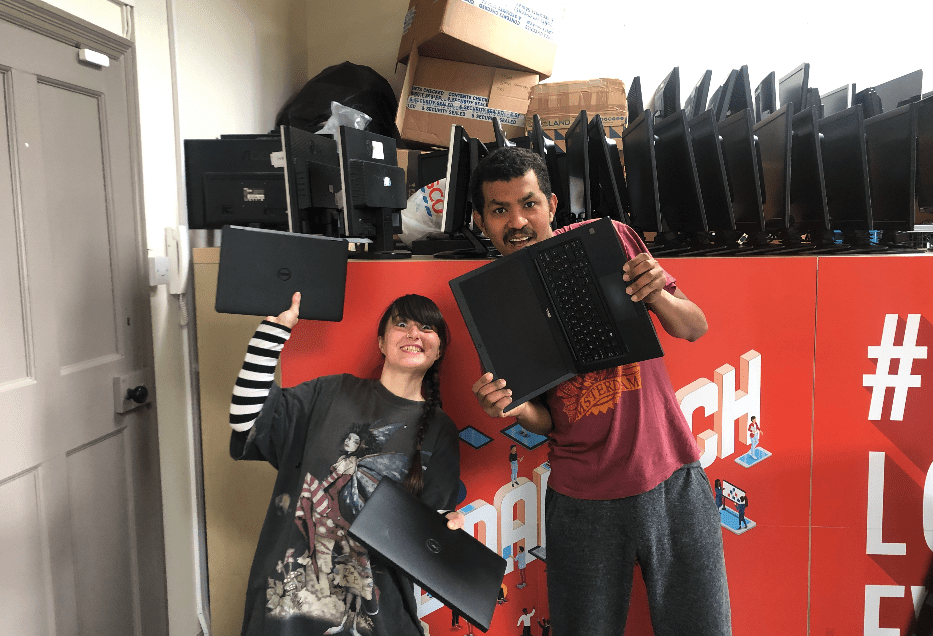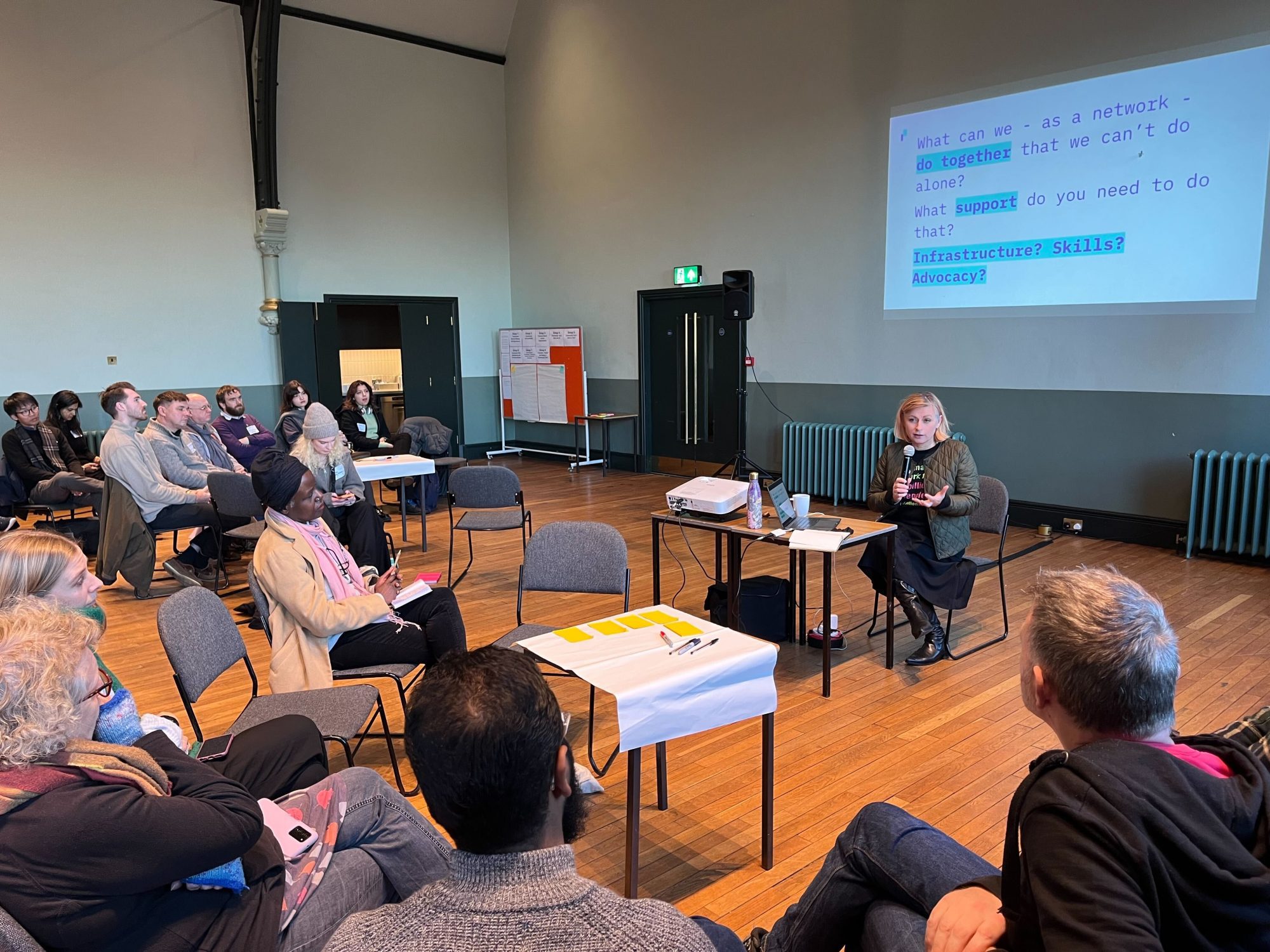
Ishita Ranjan-Churchill
Founder, Spark Insights
In 2022, Power to Change commissioned Spark Insights and Locality to research and explore the experiences of community businesses and organisations led by and/or supporting people experiencing marginalisation, their barriers to accessing funding and support, and potential solutions.
In a previous blog post, we shared the key messages from community businesses we spoke with. In this piece, we share insights from funding and infrastructure organisations. The full report, along with the recommendations, can be found below.
Have you found your North Star?
There was a notable difference between funders and infrastructure organisations who were able to articulate the link between their mission and values, and how these related to tackling marginalisation versus those that were not able to.
Where organisations were unable to clearly link their strategies or their approaches to tackling marginalisation to their mission and values, there was a general lack of clarity and sense of confusion regarding the effectiveness of their approach, as well as individual roles. On the other hand, where approaches and strategies were developed and delivered in line with the organisation’s mission and values, there was a greater sense of clarity around the end goals.
One interviewee described tackling inequality as their North Star; another described it as their organisation’s core purpose. In cases where there was this clarity, this influenced how strategies to tackle marginalisation were developed, communicated, delivered and measured. Overall, there was a much greater sense of clarity and cohesion where organisations were able to find their North Star and sense of purpose regarding their role in tackling marginalisation.
Take action: Review your organisation’s approaches to equality, equity, diversity, inclusion and tackling marginalisation in line with the mission and values of the organisation. How do these align? Is there cohesion between what you are trying to achieve and the mission and values? How has this been communicated internally and externally?
Reactive responses won’t make for sustainable change
This challenge around cohesion with mission and values contributed to some of the wider challenges funders and infrastructure organisations were facing; is their work tackling marginalisation intentional or reactive? Is it authentic or tokenistic? Will it be impactful in the long term?
As public consciousness around anti-racism and anti-oppressing grew in the wake of the Black Lives Matter movement, and fuelled by the inequalities highlighted by Covid-19, many funders moved to respond to emerging challenges and trends.
Whilst there was some short term action (e.g. ring fenced funding) and even success (new partnership to reach and engage with people experiencing marginalisation), with the benefit of hindsight, there seemed to be a realisation amongst supply side organisations that reactive responses had led to new challenges and had reinforced unintentional barriers (such as fostering further competition amongst particular groups for pots of ring-fenced funding) and created new issues (for example, over reliance on a small number of partners).
Small wins are a good start, but community businesses need meaningful systems change that is sustainable and inclusive. In order to ensure the longer term sustainability of measures, interventions need to be rooted in an equitable approach, informed by the people they aim to serve, and designed with intentionality and authenticity at their core.
Take action: Review your organisational approach to engaging with people and communities experiencing marginalisation in the past three to five years. How has this been influenced by current or global events like the Black Lives Matter movement or the Covid-19 pandemic? Are there any instances or example of where your organisation has been reactive?
Getting the house in order: improving internal representation, knowledge and skills is essential
The representation and make up of staff teams at funding and infrastructure organisations as highlighted by community businesses, especially with regards to trustee boards and decision makers (e.g. investment committees and grant panels). Community businesses expressed a clear desire to see funders and infrastructure organisations be more transparent about what they were doing to address their own internal staff make-up and what steps were being taken to improve representation at decision making levels.
Interviewees from funding and infrastructure organisations recognised the limitations around their own personal knowledge, and there was discomfort expressed around not having lived experiences of particular types of marginalisation.
On the other hand, there was also discomfort from those who did have lived experiences, highlighting the additional expectation and responsibility they faced in harnessing and utilising those lived experiences in workplace situations.
All organisations expressed that there were a wide range of starting points and knowledge levels across their organisation when it came to equity, diversity and inclusion. One of the key challenges experienced by funding and infrastructure organisations was getting staff on the same page in terms of priorities and establishing a starting position.
Ultimately, both those with and without lived experience stressed the importance of building their knowledge, skill and credibility.
Take action: Conduct a skills and experiences audit of your organisation’s staff team. What topics do individuals want to build knowledge and credibility on? What organisational knowledge exists? What can be done to address knowledge gaps?
No ‘one size fits all’ approach
As this research comes to a close, we would urge funding and infrastructure organisations to build effective interventions to tackle marginalisation. There is no one size fits all approach, no silver bullet or quick win that can address the myriad of barriers experienced by community businesses led by or supporting those who experience marginalisation.
Ultimately, in order to stop perpetuating inequalities as funding and infrastructure organisations, there are a number of actions that need to be taken, both addressing internal issues within organisations and external experiences with organisations.
Take action: Read the report (below). We explore in detail the recommendations for how funding and infrastructure organisations can address these challenges. Recommendations can be found from page 64 onwards.



